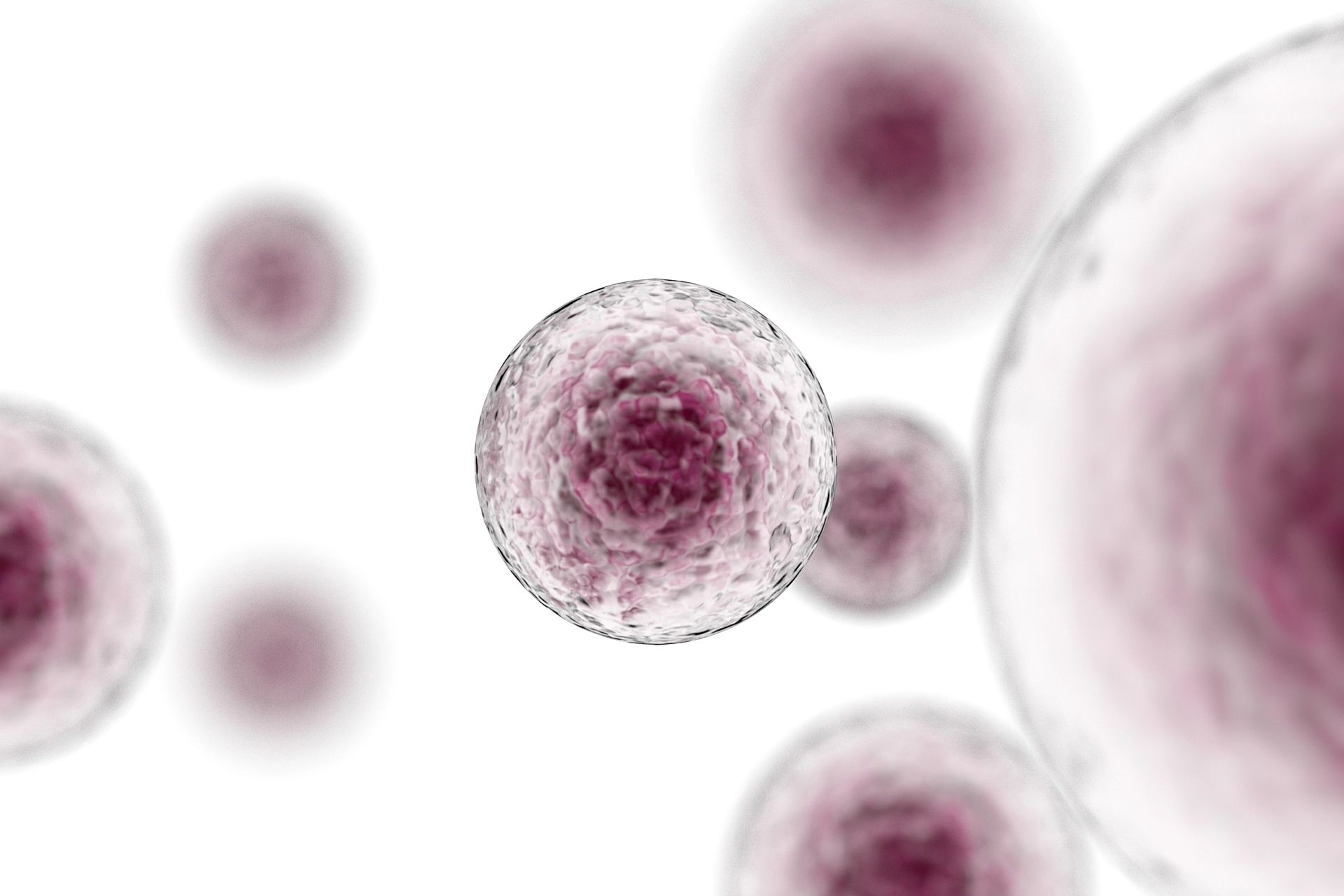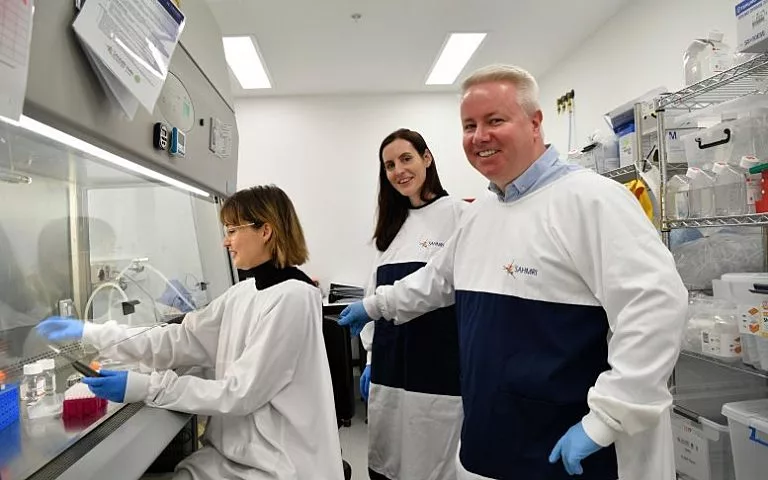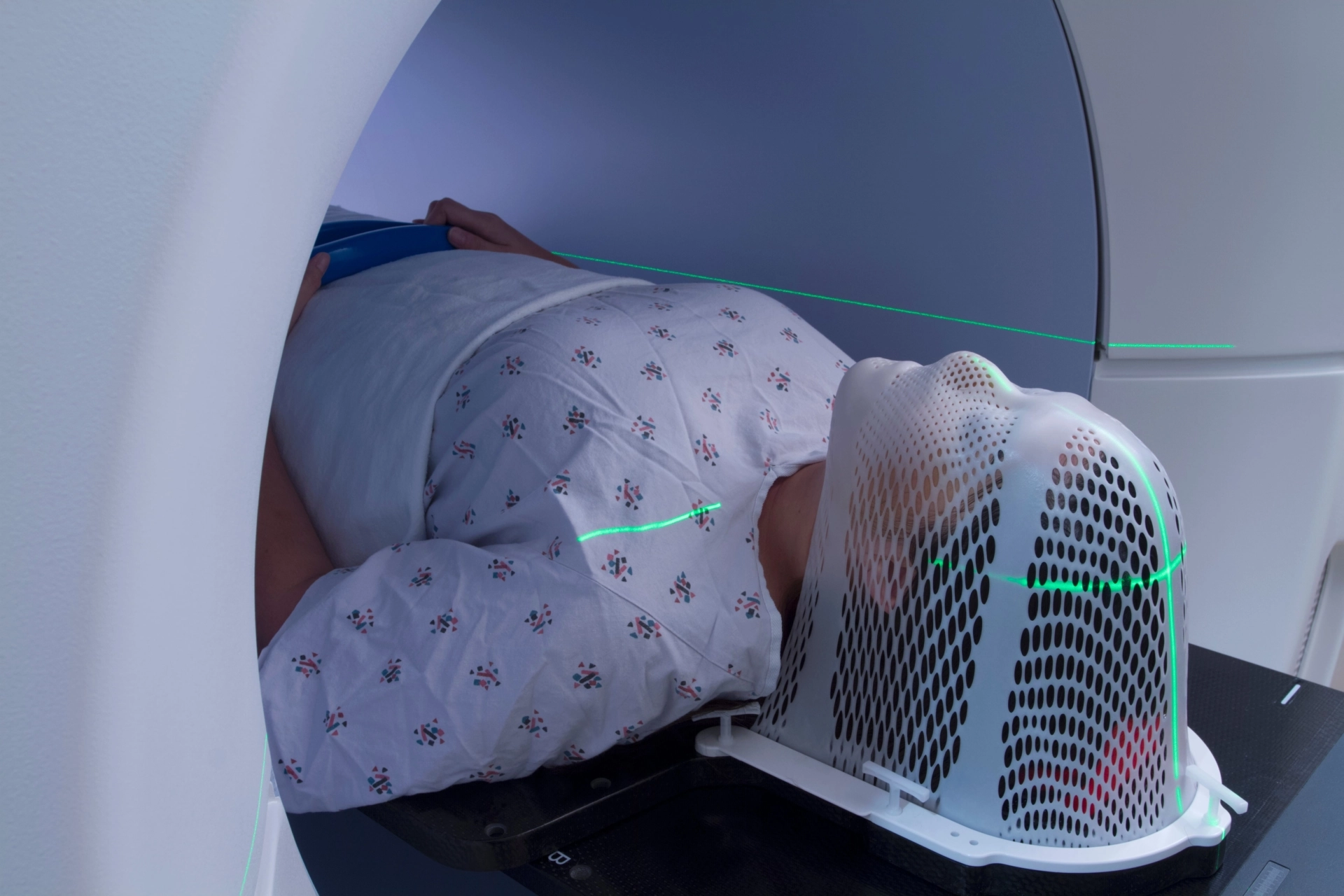SAHMRI and Flinders University researchers may have found a way through a major stumbling block that’s stopped potentially life-saving cancer treatments from progressing for more than a decade.
Immune agonist antibodies (IAAs) are promising immunotherapies that target receptors on immune cells and trigger potent anti-cancer immune responses, particularly when combined with Immune Checkpoint Inhibitors (ICIs), another type of cancer immunotherapy already in clinical use.
But the usefulness of IAAs has been severely hampered by serious dose-limiting immunotoxicity such as potentially fatal liver damage, life-threatening cytokine storms, and colitis.
A new study published in Cell Reports Medicine has shown for the first time that it’s possible to counteract the dangerous immunotoxicity induced by these drugs by targeting the gut microbiome.
The study was led by Prof. David Lynn, an EMBL Australia Group Leader at SAHMRI and Flinders University, and Dr. Stephen Blake, a senior postdoctoral fellow in Prof. Lynn’s team.
“In preclinical models, we’ve shown that germ-free mice with no microbiome are almost completely protected against the immunotoxicity induced by IAAs, without compromising the anti-cancer effectiveness of these drugs,” Prof Lynn said.
“That we can prevent immunotherapy induced toxicity without impacting anti-cancer responses is crucial, as studies of ICI based immunotherapies without IAAs have shown that antibiotics severely inhibit their effectiveness against cancer. Combining the treatment with IAAs appears to overcome this.”
IAA immunotherapies have enormous potential to treat a wide range of cancers by sensitising what are known as immunologically ‘cold’ cancers to ICIs, but the toxicity induced by these drugs has been a major roadblock to progress from clinical trials to approval for clinical use.
“If we can overcome the toxicity, we can potentially use IAAs and ICIs in combination, to treat many different types of cancers that are not currently treatable using ICIs,” Prof Lynn said.
Researchers are encouraged by the fact microbiota- targeted interventions are relatively simple to implement.
“This doesn’t involve the need to develop any new drugs, so if targeting the microbiota does prove effective in humans, it shouldn’t take as long to make it widely available to patients,” Prof. Lynn said.
Lynn and Blake have already established collaborations with Dr. Susan Woods and her team at SAHMRI to investigate if IAAs and ICIs can be used together to effectively treat immunologically cold colorectal cancers while keeping immunotoxicity to safe levels.





